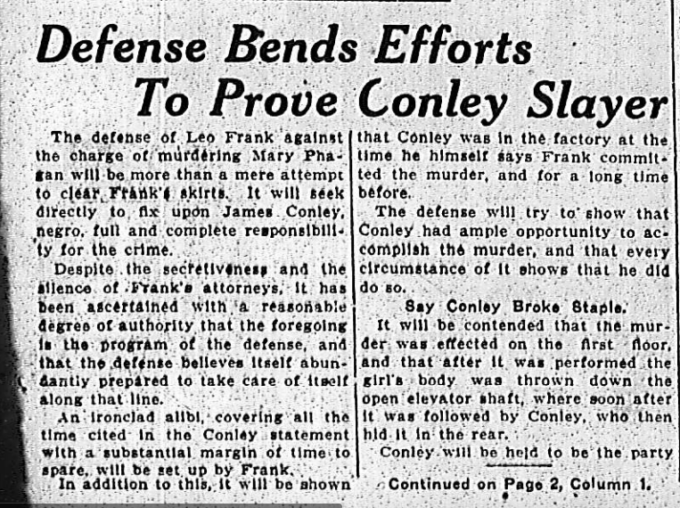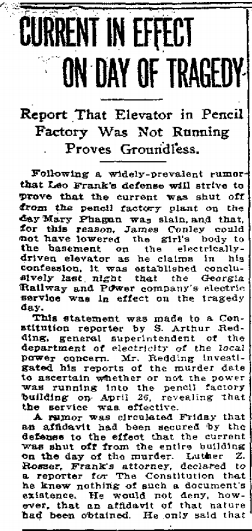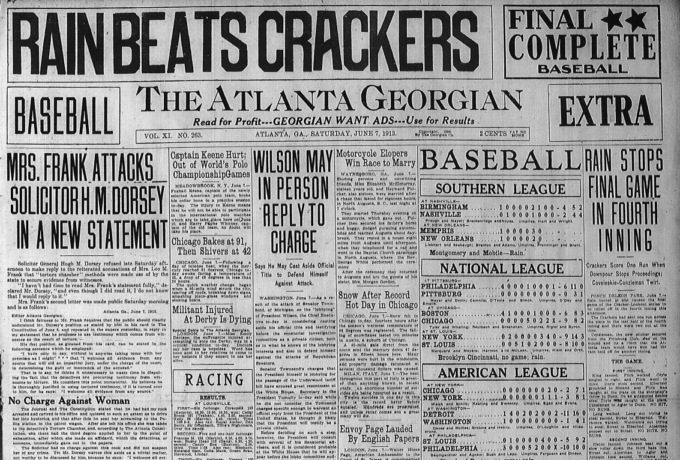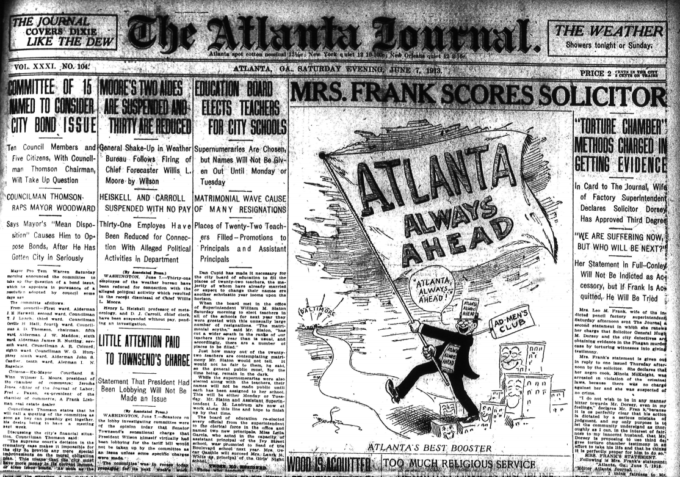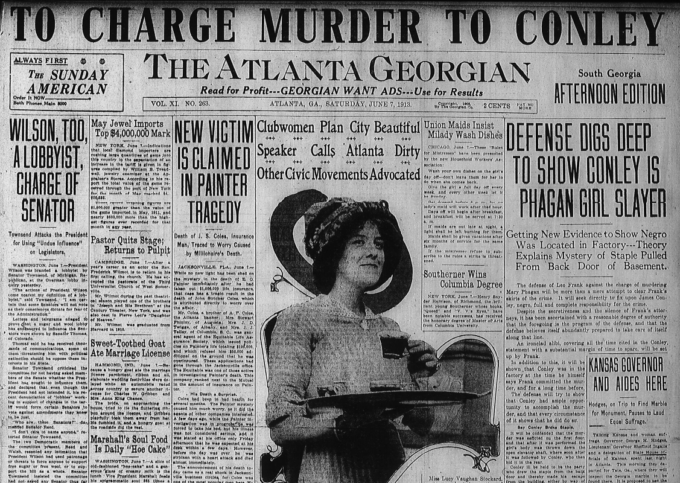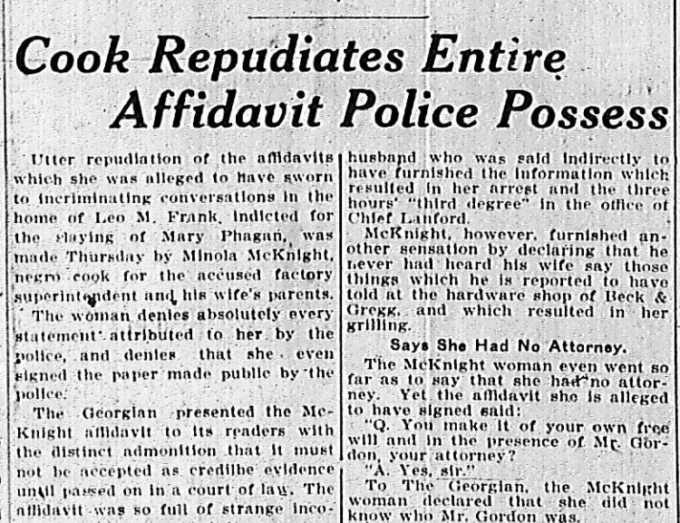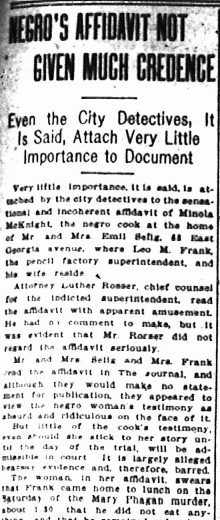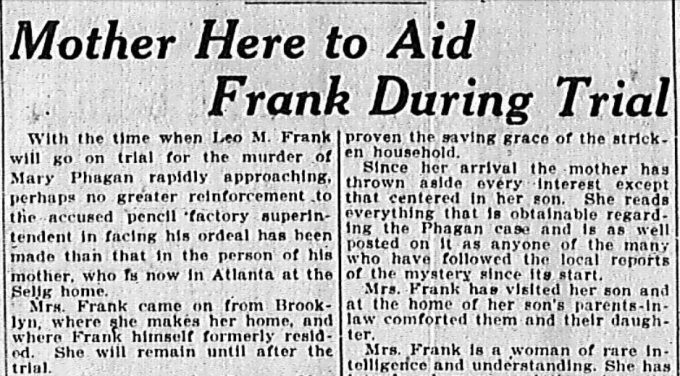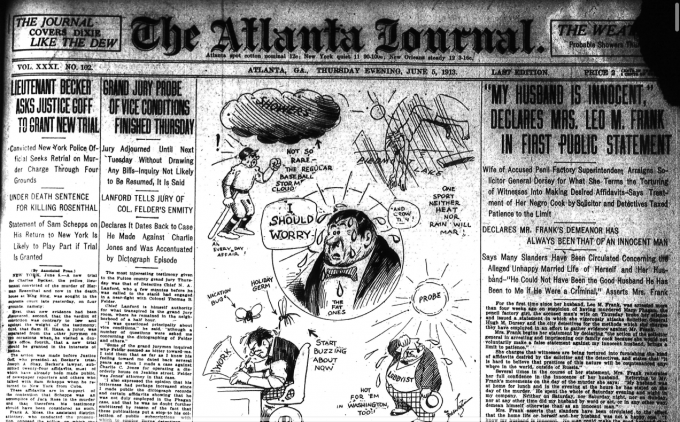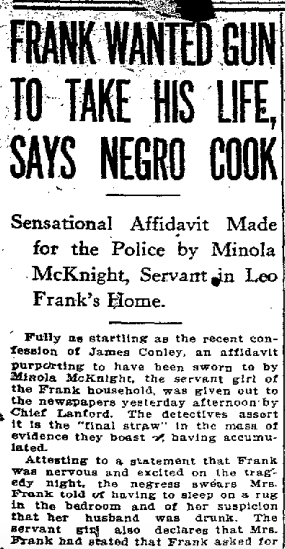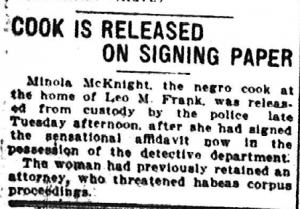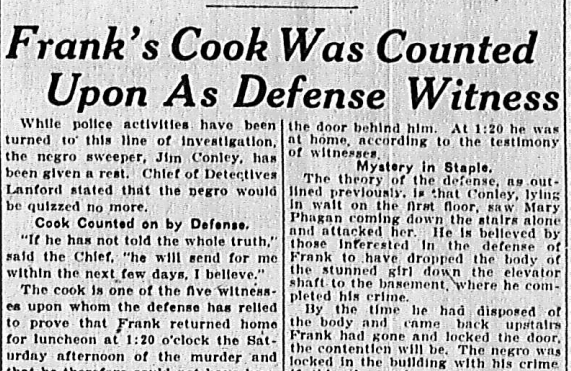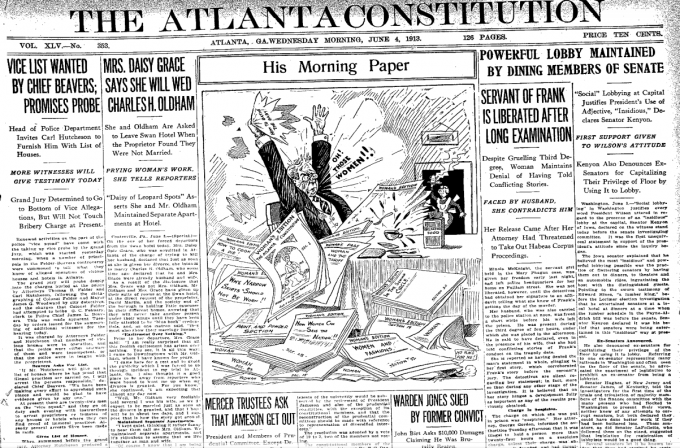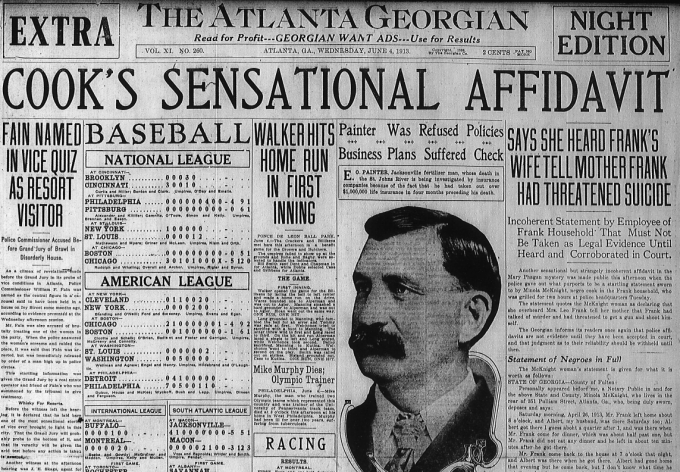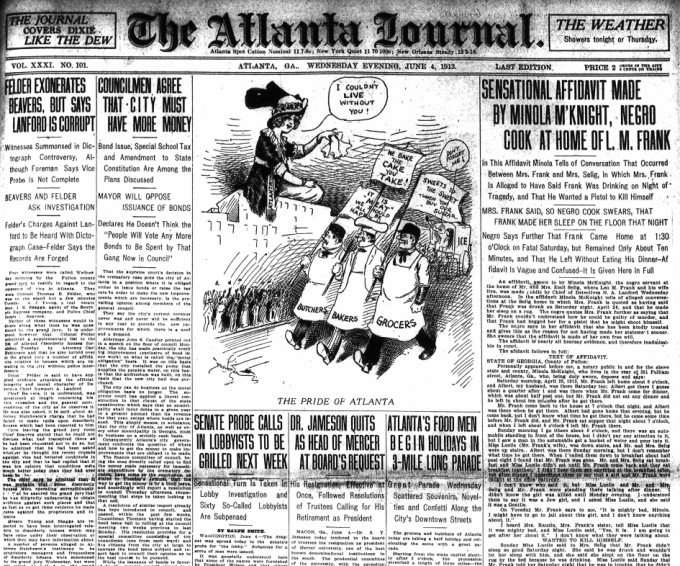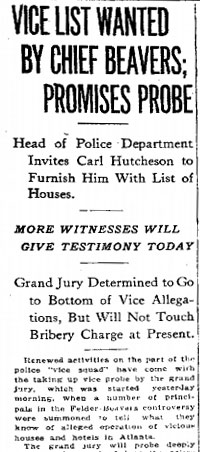Another in our series of new transcriptions of contemporary articles on the Leo Frank case.
Atlanta Georgian
Saturday, June 7th, 1913
The defense of Leo Frank against the charge of murdering Mary Phagan will be more than a mere attempt to clear Frank’s skirts. It will seek directly to fix upon James Conley, negro, full and complete responsibility for the crime.
Despite the secretiveness and the silence of Frank’s attorneys, it has been ascertained with a reasonable degree of authority that the foregoing is the program of the defense, and that the defense believes itself abundantly prepared to take care of itself along that line.
An ironclad alibi, covering all the time cited in the Conley statement with a substantial margin of time to spare, will be set up by Frank.
In addition to this, it will be shown that Conley was in the factory at the time he himself says Frank committed the murder, and for a long time before.
The defense will try to show that Conley had ample opportunity to accomplish the murder, and that every circumstance of it shows that he did do so. Continue Reading →

